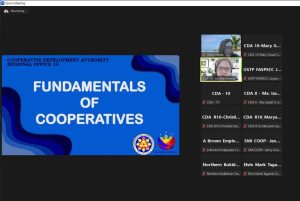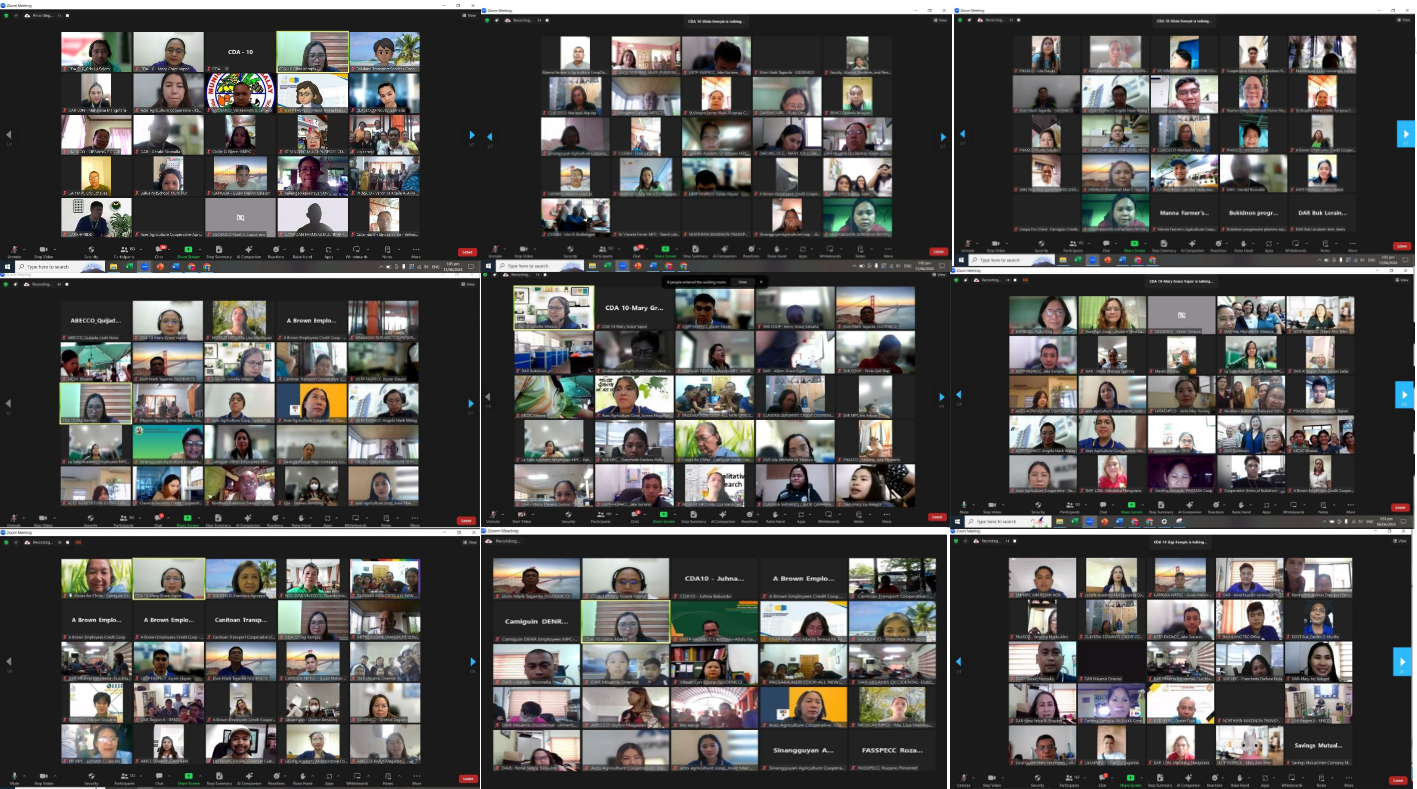
The Cooperative Development Authority (CDA) Region 10 successfully conducted a series of mandatory training aimed at empowering small cooperatives through enhanced understanding of cooperative principles, governance, and business development. Pursuant to CDA Memorandum Circular No. 2015-09 entitled Revised Guidelines Implementing the New Training Requirements of Cooperative Officers, trainings were held in two separate virtual sessions, “Fundamentals of Cooperative” on June 6-7, 2024, and “Cooperative Governance and Management” on June 13-14, 2024.

Four hundred seventy (470) participants from across the region attended the first session, which aimed to deepen participants’ knowledge of cooperative principles and values, as well as the legal framework governing cooperatives. On Day 1, Ms. Lovella L. Velasco covered the History, Principles, and Values of Cooperatives and in the afternoon, Ms. Mary Grace D. Vapor discussed the Salient Provisions of Cooperative Laws and Related Legislation. On the second day, Ms. Juhna A. Balundo provided insights into the operations of cooperatives, focusing on the Articles of Cooperation, By-laws, CDA Issuances, and relevant laws and Ms. Gilda A. Kempis discussed cooperative transformation and sustainability including the CDA Omnibus Rules of Procedure.

The second mandatory training, held on June 13-14, 2024, was also well participated by small cooperatives with four hundred fifteen (415) participants. On the first day, Mr. Cris Lu Q. Salem, CDS II presented a case study on cooperative governance issues and elaborated on the elements, principles, and governance structure of cooperatives and in the afternoon, Ms. Mary Grace D. Vapor discussed the powers and functions of cooperative officers. On the following day, Ms. Juhna A. Balundo discussed the Computation, Allocation, and Distribution of Net Surplus in the morning session. Mr. Jose Renante L. Deloso, CDS II, concluded with a session on performance measurement tools such as Balanced Scorecard and STEPS and addressed issues related to cooperative governance.
Overall, the series of training was met with positive feedback from participants. They expressed appreciation for the comprehensive coverage of essential topics and showed enthusiasm for future training opportunities provided by CDA Region 10.







